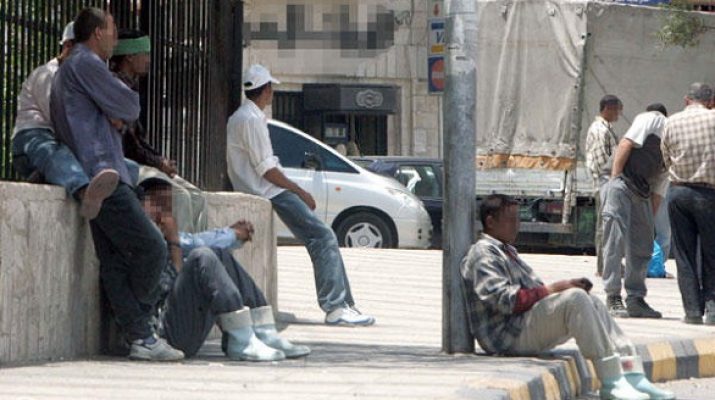
 2019-09-04
2019-09-04
Tamkeen: Some of the Articles in the new Labour Permits System would negatively affect some sectors
Tamkeen Fields for Aid issued a statement to the Ministry of Labour appraised its decision to begin the process of abolishing the Kafala System by beginning to issue Flexible Work Permits. The new system would also Impose a penalty on employers, ranging in value between 50-100% of the value of the permit in cases when they delay issuing the permit. Tamkeen said that such a move is extremely positive as some employers are in fact the cause of workers’ informality. Despite these positive points though, Tamkeen warned that some of the System’s other provisions would cause damage to some sectors.
According to the statement, on the surface the Flexible Work Permits could lead to the abolition or limit the Kafala System currently in practice, even though its consideration as form of slavery or exploitation. However, as the system has not been published yet, it is hard to determine who would be the employer or the nature of this permit. These types of information are necessary to understand as Article 12 (C) stipulates that:
“The Ministry shall charge the Employer a fee for the issue or renewal of the work permit for every non-Jordanian Employee including Employees.”
Questions thus arise about who would be considered the employer with Flexible Work Permits. Would it be the Recruitment Offices? Or would the experiment with Syrian workers be repeated by considering that the Labour Unions in the Construction Sector and Cooperatives in Agriculture as the employers? It is imperative to have clear answers for these questions in order to identify the contractual relationship and set clear responsibilities for both employer and worker; especially in relation to the permit fees.
The statement also highlighted that while the System mentioned of Agricultural workers, the status of these workers is still ambiguous due to the non-issuance of a system to regulate them, thus keeping them excluded from being included under the provisions of the Labour law. The exclusion was confirmed in a decision by the of Court Cassation in 2015. The decision stated:“No System has been issued as of yet to regulate the status of Agricultural workers, subject to the Labour Law under Article (3) following the amendments to the Labour Law No. 48 in 2008. As such, workers in the sector are discriminated against as they remain excluded from the provisions of the Labour Law. Therefore, any claim lodged by workers in the sector is not considered as a claim for labour rights, and is thus subject to the legal fees.”
As a result, the statement pointed out that the Ministry has adjusted the fees of work permits in the agricultural sector periodically. It also continues to not issue a system for workers in it till now. Consequentially, these actions show that Agricultural Workers are included under the umbrella of the Labour Law, though only with regard to fees.
Additionally, the statement remarked that the System did not increase work permit fees for non-Jordanians, but in fact made them equal across sectors from Domestic Work to Agriculture. The new fee is set at 500 JOD for everybody. It also set another fee for another type of work permits that will be issued for workers with specialized skills and those who work on a day-to-day basis, through instructions that will be issued by the Minister of Labour.
The statement also criticised the increase in work permit fees in some sectors, stating that the increase would lead to increased production costs. These high costs would then cause employers to not abide by the law, as they would either not issue or renew permits; or it will affect Migrant Workers as employers would not want to hire them to begin with."
In the end, the statement maintained that in order for the system to work, there needs to be an adjoining Inspection System, which has to be effective as well as specialised. These inspections will focus on the working conditions, and employers’ level of adherence in terms of paying the work permits fees and not the workers. However, the statement posed the question of whether inspectors can in fact do this job, especially since there are only around 200 inspectors who have the cover the full Kingdom?

